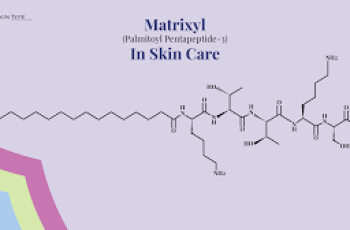
Do acid peels need to be washed off?
Indeed, acid peels are a big deal in the beauty world. Today, there isn’t a skincare product that doesn’t contain one of the popular members of the AHA and BHA families. However, acids should not be used lightly or carelessly. Choosing the wrong product for your skin type can lead to various skin irritations. Therefore, we always recommend that you consult a GP or dermatologist if you are considering adding acids to your routine. Once you find the right formula, you will notice that your skin becomes smoother, clearer, and more radiant.
Admittedly, acid peels can be confusing, especially when they are included in various skincare products. That’s why today we’re here to provide some clarification and help you understand better so that you can confidently add acid peels to your daily skin care routine right away.
What are acid peels?
Acid peels are powerful chemical skin ingredients that work on the skin by loosening dead skin cells and removing the bonds between skin cells. They remove deposits to reveal brighter, healthier skin. There are two main types of acid peels: alpha hydroxy acids (AHA) and beta hydroxy acids (BHA). Both work on the skin in similar ways, producing effects that combat signs of aging, congestion, blemishes, dullness, and uneven skin tone. The wide variety of acids in this family means there’s one for nearly every skin type, from lactic acid for dry skin to salicylic acid for acne-prone skin.
As they’ve grown in popularity in recent years, you can see these active ingredients incorporated into a ton of skincare products, such as face washes, toners, and serums. It’s no secret that acid peels can promote optimal penetration of nourishing serums, facial oils, and other treatments if you want the best results from your overall skincare routine.
If you’d like to learn more about the most commonly used acid peels, you can check out our dedicated guide on the skincare benefits of AHAs and BHAs on our blog. Of course, we didn’t forget about you with sensitive skin, either. Polyhydroxy acids can help you address your skin concerns without the known side effects of their stronger cousins. You can also learn more about their skincare benefits in one of our latest blog posts.
How do acid peels work on the skin?
Acid peels remove the buildup of dead skin cells that can cause some skin problems, such as blemishes, flaking skin, and dull complexion. Here are some examples of the main benefits of acid peels:
Acid peels fight the buildup of dead skin cells that can make skin look dull.
Acid peels remove cells so that other skincare products can better penetrate the skin and work more effectively.
Acid peels contain antioxidants that provide additional protection to the skin barrier from free radical damage caused by daily environmental aggressors.
Acid peels support skin cell turnover for a brighter, younger look.
Acid peels target clogged pores, removing all traces of bacteria and buildup that can cause uneven texture and blemishes like blackheads.
Acid peels can support the production of collagen and elastin in the lower layers of the skin, reducing signs of aging.
Some acid peels are humectants, meaning they lock in moisture from the surrounding air, keeping the skin hydrated.
Here’s an overview of the benefits you can expect from using acids. Exfoliation, we understand how daunting it can be to use skincare products that contain acidic ingredients. That’s why we’re going to give you some advice on how to use these products correctly right now.
Do you wash off chemical peels?
Yes and no, it really depends on the type of product you use that contains acidic exfoliants. That being said, if you want faster results on your skin, opt for serums, facial oils, and nighttime treatments so that the ingredients stay on the skin longer and have a greater effect on the skin. Other products, such as face washes and cleansers, are the least effective, as they only stay on the skin for a short time. Acid toners are another product that can affect your skin. The acid potency in toner formulas is usually quite high and has the biggest impact on the effectiveness of the rest of your daily skincare routine.
Face wash = water
Face wash = water
Acid tonic = let it work
Face serum = leave it in
Face oil = let it work
Overnight treatment = rinse off the next morning
Face mask = rinse off as directed
Remembering the previous points in this article, it is important to make sure you are using the right acid for your skin type when adding acids to your routine. You can find out what your skin type is in our blog on the 4 most common skin types. Here are some examples of the best acid peels for different skin types:
Sensitive skin types:
PHAs
Always consult your GP, dermatologist or medical professional for advice on incorporating acids into your daily routine. Always do a 24 hour patch test before using any product on your skin
Dry skin types:
PHAs
AHAs, e.g. B, Lactic Acid
Please note that the above advice also applies to dry skin types.
Combination skin type:
AHAs such as lactic acid, glycolic acid and vitamin C
BHAs such as B. salicylic acid
Remember to patch test daily and wear SPF 30 or higher sunscreen to prevent sun damage from UV rays
Oily skin type:
BHAs such as B. salicylic acid
AHAs such as B. glycolic acid and vitamin C
Use SPF sunscreen daily and be careful not to overuse acid peels as this can strip oils from the skin and increase sebum production
Did you wash off your exfoliating serum?
There is no need to wash off an exfoliating serum or similar skincare products. Generally, serums work best on the skin when they are left on for as long as possible. Therefore, washing off an exfoliating serum will cause it to be ineffective on the skin and fail to address the issues you are trying to address. Since acid peels can make the skin more susceptible to sun damage, we recommend using an exfoliating serum at night to allow the ingredients to penetrate deeper without having to worry about UV exposure. You may also find that your serum is more effective if you use it at night, as other free radicals are not produced during the day, such as from: B. Pollution, central heating and environmental sources of contamination.
What to do after an acid peel?
After using an acid peel, the skin’s natural barrier needs to be kept balanced and calm to avoid irritation. That’s why you’ll get the best results with a skincare routine that includes a cocktail of replenishing ingredients. Using a gel-like serum enriched with hyaluronic acid or niacinamide will lock in moisture, keeping your newly exfoliated skin soft and hydrated. As we’ve already stressed, daily SPF is a must to keep your skin healthy and happy. Occasional skin care treatments, such as a night mask or professional facial, are ideal for additional skin regeneration and nourishment.
If you have any questions about acid peels, please contact us via our Instagram. Don’t miss more skincare tips and expert advice on our YouTube channel! Click the “Subscribe” button to visit our green couch. You won’t regret it!


